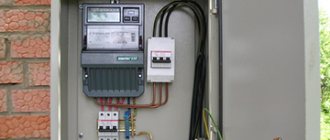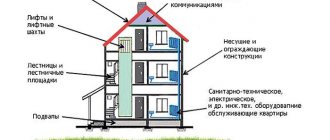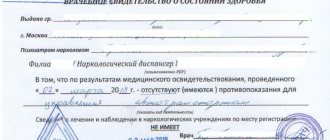Having permanent or temporary registration is an important condition for normal existence. Without registration, it is impossible to enroll a child in kindergarten, it is difficult to register him for school, and there are inconveniences when obtaining various documents. At the same time, temporary registration gives the same rights as permanent registration. Registration is permitted in a property that is listed as residential. This is not necessarily an apartment; a separate household is also quite suitable. There are nuances to how to register in a private house.
The legislative framework
Any registration, including in a household, is controlled by the same laws. The main one is Federal Law No. 5242-1, which regulates the need to have a residence permit temporarily or permanently. The classic mechanism of registration based on the fact of residence is prescribed in Government Decree No. 713. There is also a framework that regulates punishment for both the lack of registration and its falsification.
The rules for registration in a private house are provided for by the same laws as registration in an apartment.
Is it possible to register at your dacha in SNT and what is needed for this?
- Location of the building. To register a house, it must have an address: street, house number, zip code. Therefore, those buildings that are located within the city or close to it have an advantage.
- The premises must be residential. This concept refers to permanent brick buildings, and not wooden summer houses, trailers or barns.
- Only a house that has electricity, gas, water, and heating can be considered residential. In addition, the condition of the water that residents will use is also important. The house must have drinking water or high-quality filters if only technical water is available. Confirmation of suitability for residence throughout the year is a registration certificate, which is issued by the BTI.
- A house in a dacha community must be registered in the cadastral register, and information about it must be entered into the Rosreestr.
- An applicant for registration must have title documents for the dacha and the land under it.
- A citizen can register in a country house only if such a building is his only home.
- The tenant is discharged from the previous place of residence and receives a departure certificate. Together with the owner, it is necessary to visit the body dealing with these issues - the Federal Migration Service at the location of the dacha.
- You will need passports of the owner, the future tenant, and title documents (in case of permanent registration of the tenant).
- If the dacha is owned by several citizens, it is mandatory for each of them to be present at the FMS during the registration procedure and to obtain written consent to register the new resident.
- Permission is not required only if a child under 18 years of age is registered with his parents or one of them.
Registration in a private house
Most homeowners are interested in what rights registration in a private house gives. These are the same opportunities as in other residential properties. Home ownership in this regard has absolutely equal rights with apartments.
The conditions for registration in a private house are simple - contact the local passport office with documents. It is important to understand that without permanent registration or without obtaining a temporary one, a citizen will have to pay a fine.
After contacting the passport office, a person finds out the conditions for registration in a private house, collects the necessary package of papers and arrives at the appointed time.
Without home ownership
There are no owner rights, but you can register in the home ownership. Owner's consent is required. But the person registered in such a house has no rights. The owner can write it out at any time, without even being interested in consent and permission.
Rules for submitting papers
Originals or copies?
If you carefully read the specified Government Resolution No. 713, then from paragraph 16 it is clear that it is required to submit an “identity document” and a document that is the basis for moving into a residential premises, and not copies of these documents. Therefore, the passport and certificate of ownership must be submitted in the original.
The employee receiving the documents can himself, after reviewing the submitted documents, make copies of them and attach them to the application, and return the originals. In any case, the passport will remain with the migration service employees, because it will be stamped with a permanent registration stamp. In return, a temporary certificate is issued. They will also issue a receipt for receipt of documents.
Full-time or part-time?
It is possible to submit documents for registration in absentia . For example, electronically through the State Services portal, but the passport is presented in person and in the original - it contains a note about registration at the place of residence.
In addition, the passport office and the MFC are intermediaries in the submission of documents and applying for registration through them can also be considered as an absentee form. The applicant does not contact the registrar directly.
Only an application to the migration service cannot be considered anything other than a full-time form of submitting documents for registration.
More and more people are acquiring country houses with all modern communications. But the process of registration at a dacha (in SNT or ONT) is not an easy procedure. Our experts have prepared a series of materials on how to properly register in such cases, and also find out whether it is possible to register in an unfinished private house.
Registration procedure
There are several ways to register. You can contact the passport office at your place of residence, but you don’t always want to stand in lines, and you may not have enough time. Therefore, it is common to obtain registration through the MFC, housing department, and the State Services website.
The procedure for registering in a private house is not complicated. It is enough to collect documents and submit them in paper or electronic form.
Required documents
Documents for registration in a private house:
- application on official form;
- passport;
- a document confirming the presence of children and their age;
- house book and extract about those who live in the house according to the document;
- certificate of ownership of the plot of land on which the house stands;
- if the object is not privatized, a document on social rent.
What you need to register in a private house also depends on the specific situation. Additional paperwork may be required, and you will be advised about this.
Through MFC
This method of registration does not differ from the standard application to the passport office. You need to collect the necessary documents and contact the MFC branch. There, write an application according to the sample and wait until the employees check all the information for authenticity and give permission to register.
You can register at a new place of residence through the MFC quickly and without problems; this is a government agency, which, in fact, is considered an intermediary between the applicant and government agencies.
How to register in a private house through the MFC will be explained in detail in the center itself.
other methods
If you don’t know how to register a person in a private house, then it’s enough to even contact the housing department that serves this household. There, specialists will help you fill out an application and tell you in detail what and how many documents are needed.
When applying through the State Services website, you must provide all documents in electronic form. The person who applies for registration must be registered on this portal. Then you need to go to the site using your data and upload all the documents you need into a special form. They will be sent to the migration service for verification.
What do you need to register in your own space?
Registration in the Russian Federation is regulated by the following regulatory documents:
- Law of the Russian Federation of June 25, 1993 No. 5242-1 “On the right of citizens of the Russian Federation to freedom of movement, choice of place of stay and residence within the Russian Federation.”
- Decree of the Government of the Russian Federation No. 713 of July 17, 1995 “Rules for registration and deregistration of citizens of the Russian Federation at the place of stay and at the place of residence within the Russian Federation.”
These documents regulate registration in private houses, apartments and other residential premises. The law imposes the same requirements for the registration procedure in private houses and apartments. Therefore, the procedure for registering in a residential building is identical to the procedure for registering in an apartment in an apartment building (you can find out more about how to register in a private house and what is needed for this in this article).
Until 2021, a house register was opened for every private house. It was kept by the owner. It was obligatory to make a note in the house register about registered and discharged citizens. This made registration in a house different from registration in an apartment, but as of April 17, 2018, house registers were canceled and the differences were eliminated.
There are the following types of registration of citizens::
- permanent, at the place of residence;
- temporary, at the place of stay.
They can register permanently or temporarily in a private home:
- owners;
- family members of the owner;
- other persons, under a lease agreement or other grounds, for example, by testamentary refusal.
Drawing up an application
When registering, it is important to fill out the application correctly. There is an official form for this. It contains the following information.
- Information about the applicant.
- His passport details.
- Address of the property where registration will take place.
- If necessary, the consent of the owner or other interested parties.
An application for registration in a private house should be written carefully and carefully. If there are errors in the completed document, difficulties may arise and registration may be denied.
What papers are needed?
For registration in the house at the place of residence, i.e. permanent registration, the following documents will be required from the owner :
- An application prepared on a special unified form according to Form No. 6.
- An identification document is usually a passport.
- A document confirming ownership of the house: a certificate of ownership or an extract from the Unified State Register of Real Estate.
For permanent registration of an adult who is not the owner, all of the above documents will be required, as well as the written consent of the owner or all owners, who must be present when submitting the application in person.
If it is impossible to attend this procedure in person, the owners can vest the appropriate powers in one of them by issuing notarized powers of attorney. They can delegate powers to other persons as their representatives. All powers must be detailed in the power of attorney.
Minor children are required to be registered at the place of residence of their parents, and for registration in a private house the following documents must also be presented:
- Application on form No. 6, which is filled out by one of the parents.
- Parent's passport, with a stamp indicating permanent registration at this address.
- Child's birth certificate.
- A document confirming ownership of the house.
The spouse registers with the other spouse by providing, in addition to the application and passport, a marriage certificate.
Registration at the individual housing construction site
- Homestead land. Located in populated areas. It is allowed to build a house and other outbuildings on it.
- Field land. It is located outside the settlement (city) limits. The main purpose is to conduct agricultural activities, that is, building houses and other buildings on it is strictly prohibited.
- the village in which the house is located must be located within the populated area, the opportunity to register on an agricultural plot remains, but it is unlikely that it will be possible to avoid a lawsuit with the FMS;
- if the construction has a floor plan from the BTI;
- registration is not possible if the building is not accepted by the BTI;
- a new building must have an official postal address, it is issued only to those buildings that are located within the populated area; it is impossible to obtain it for agricultural land, therefore, it is also impossible to register;
- On a plot without a house or a construction site, registration is also impossible.











